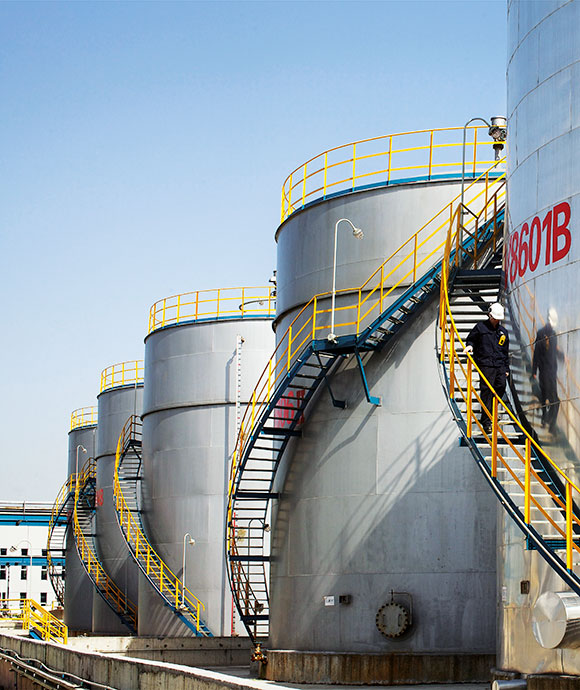Oxidation technology
In terms of organic chemistry, oxidation is defined as a reaction which causes carbon to lose electron density.
This can be caused by a carbon atom forming a bond with a more electronegative atom (e.g. oxygen, nitrogen), or breaking a bond with a less electronegative atom (e.g. hydrogen).
Consequently a hydrocarbon reacting with oxygen to form new C-O bonds constitutes an oxidation reaction.
Johnson Matthey's DAVY™ liquid-phase oxidation technology forms part of our purified terephthalic acid (PTA) process, which is based on the COMPRESS™ PTA flowsheet we developed in conjunction with Dow.

COMPRESS PTA employs conventional chemistry with a breakthrough combination of proven processes to generate high-quality product with less equipment and a smaller plot space.
The oxidation stage of COMPRESS PTA sees para-xylene oxidise to terephthalic acid via the overall reaction shown:
The resulting crude terephthalic acid (CTA) then undergoes a streamlined series of hydrogenation, crystallisation, filtration and drying steps to yield the final purified terephthalic acid (PTA) product.
COMPRESS is a trademark of The Dow Chemical Company.

